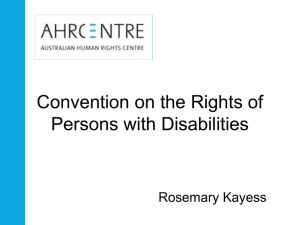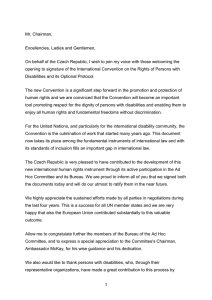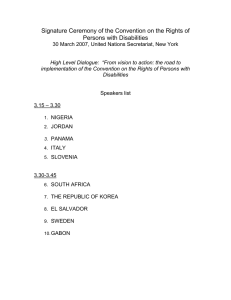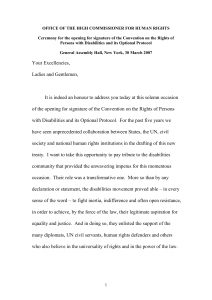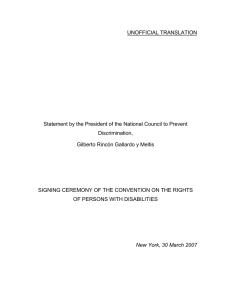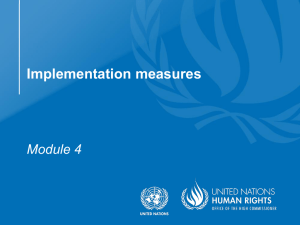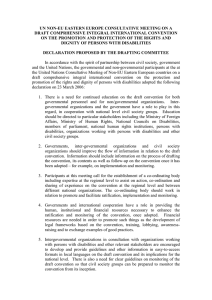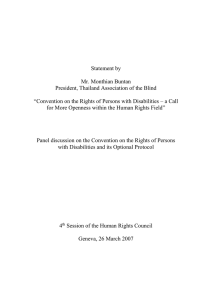Deputy Secretary General
advertisement
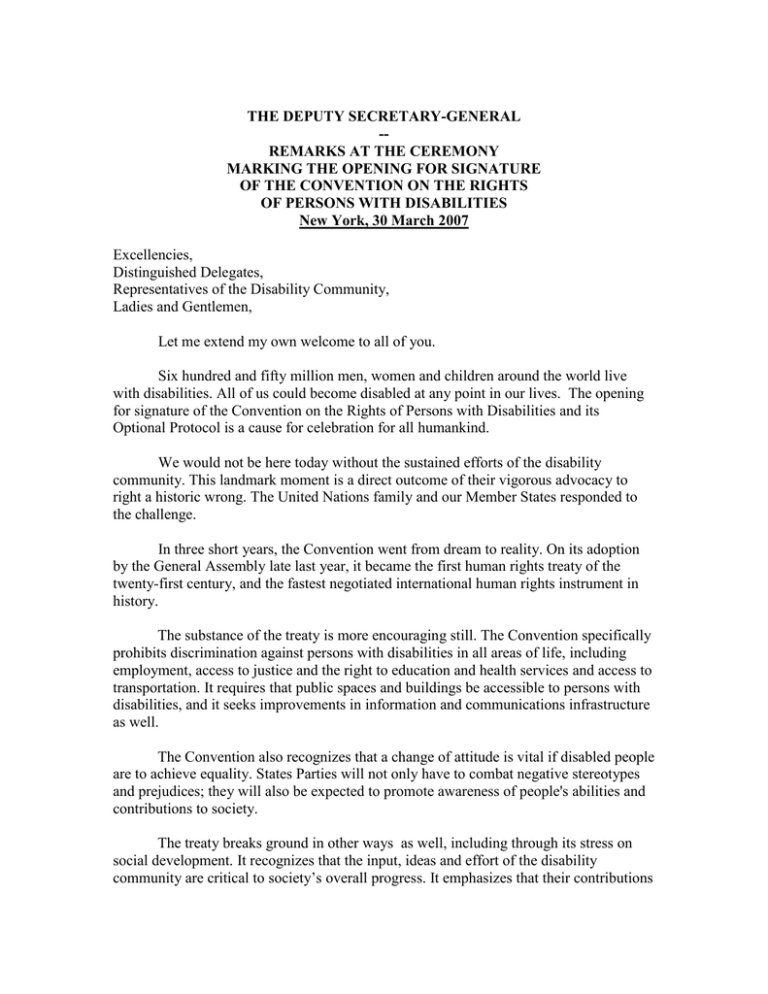
THE DEPUTY SECRETARY-GENERAL -REMARKS AT THE CEREMONY MARKING THE OPENING FOR SIGNATURE OF THE CONVENTION ON THE RIGHTS OF PERSONS WITH DISABILITIES New York, 30 March 2007 Excellencies, Distinguished Delegates, Representatives of the Disability Community, Ladies and Gentlemen, Let me extend my own welcome to all of you. Six hundred and fifty million men, women and children around the world live with disabilities. All of us could become disabled at any point in our lives. The opening for signature of the Convention on the Rights of Persons with Disabilities and its Optional Protocol is a cause for celebration for all humankind. We would not be here today without the sustained efforts of the disability community. This landmark moment is a direct outcome of their vigorous advocacy to right a historic wrong. The United Nations family and our Member States responded to the challenge. In three short years, the Convention went from dream to reality. On its adoption by the General Assembly late last year, it became the first human rights treaty of the twenty-first century, and the fastest negotiated international human rights instrument in history. The substance of the treaty is more encouraging still. The Convention specifically prohibits discrimination against persons with disabilities in all areas of life, including employment, access to justice and the right to education and health services and access to transportation. It requires that public spaces and buildings be accessible to persons with disabilities, and it seeks improvements in information and communications infrastructure as well. The Convention also recognizes that a change of attitude is vital if disabled people are to achieve equality. States Parties will not only have to combat negative stereotypes and prejudices; they will also be expected to promote awareness of people's abilities and contributions to society. The treaty breaks ground in other ways as well, including through its stress on social development. It recognizes that the input, ideas and effort of the disability community are critical to society’s overall progress. It emphasizes that their contributions can supply a crucial boost to the development agenda, while simultaneously accommodating the needs of this important constituency as well. Now that the Convention and its optional protocol are open for signature, the focus will shift to Member States and their national legislatures. These instruments require 20 ratifications to enter into force. Given the strong representation of Member States at this ceremony, I believe that number will not be long in coming. But I hope we will go much further than that, and achieve universal ratification. Currently, fewer than 50 countries have specific legislation that protects persons with disabilities. I know we can do better, and today’s gathering shows us the way. Of course, ratification has to be followed by vigorous implementation and oversight at the national and local levels. Only then will the real benefits of this legislation be felt by millions of persons with disabilities through the world. Only then will our own high expectations prove truly justified. So I urge all Member States to consider signing, ratifying and implementing this important Convention, and its optional protocol, without delay. And I congratulate all who have worked so hard towards this day. Thank you very much.

